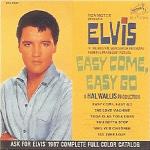 Greg Sargent tried to get to the bottom of an important political question, What Does the American Public Really Think of the Iran Deal? He took on two recent polls. One, by Quinnipiac, found that by a 57%-28% margin, Americans disagree with the Iran nuclear deal. But an NBC News poll came out the same day that found that by 35%-33% margin, Americans agree with the deal. Is one poll an outlier? Not really. As Sargent pointed out, in the NBC News poll, respondents were allowed a third choice: “don’t know enough.” Another 32% chose that option.
Greg Sargent tried to get to the bottom of an important political question, What Does the American Public Really Think of the Iran Deal? He took on two recent polls. One, by Quinnipiac, found that by a 57%-28% margin, Americans disagree with the Iran nuclear deal. But an NBC News poll came out the same day that found that by 35%-33% margin, Americans agree with the deal. Is one poll an outlier? Not really. As Sargent pointed out, in the NBC News poll, respondents were allowed a third choice: “don’t know enough.” Another 32% chose that option.
This goes along with an article that Zack Beauchamp wrote that I discussed last week, Public Opinion and the Iranian Nuclear Deal. In that case, the difference was priming. If respondents were give a little information about what the deal was, they were much more likely to support it. Conservatives have cried foul in both cases. They claim that Americans must be polled in their natural state of ignorance and must not be allowed to admit that they do not know enough.
I think that’s hooey. Polls are supposed to tell us something. Snapshots are all fine. But when one-third of the population is fine with admitting they don’t know enough to form an opinion, it tells us that it isn’t an issue that they care much about. Are we supposed to base our policy about what Americans think regarding a subject on which they will only give an opinion if forced? Clearly, the Iran deal is not going to be an issue in the presidential race for a third of the people. And I doubt it will an important issue for the other two-thirds.
 Let’s face it: any deal with “Iran” in the title is going to sound bad to Americans. After the deal came out, my father told me that he did not like it. After a heavy sigh, I asked him why. He said, “I just don’t trust those people.” I immediately thought that American media had been completely successful in their propaganda campaign. My father had fully absorbed the idea that the Iranians were some kind of nefarious “other.” So I pointed out that we had made deals with the Soviet Union when we didn’t trust them. And that what is currently said about Iran — “They aren’t rational!” — was said about the Soviet Union.
Let’s face it: any deal with “Iran” in the title is going to sound bad to Americans. After the deal came out, my father told me that he did not like it. After a heavy sigh, I asked him why. He said, “I just don’t trust those people.” I immediately thought that American media had been completely successful in their propaganda campaign. My father had fully absorbed the idea that the Iranians were some kind of nefarious “other.” So I pointed out that we had made deals with the Soviet Union when we didn’t trust them. And that what is currently said about Iran — “They aren’t rational!” — was said about the Soviet Union.
The big argument against the Iran deal is based on a flat out lie. It took almost two years of intensive negotiations to make this deal. What do opponents think? That everyone was just enjoying the expense account? The P5+1 just came in and gave Iran everything it wanted and then they spent the rest of the time sipping drinks by the pool? The deal itself is actually rather clever, with a mechanism for automatically reinstating the sanctions. All any of the involved countries has to do is accuse Iran. Personally, I find it hard to believe that Iran accepted that. It shows an amazing amount of trust in the other countries.
I think Sargent sums up what is really going on regarding public opinion:
And the poll (NBC) that describes the deal in somewhat neutral terms but also allows people to admit to not knowing enough about it get a breakdown roughly in thirds — largely along partisan lines.
I believe in democracy. But this is not democracy. Clearly, democracy is more than voting. But even just looking at voting, there is a lead up to the vote. People hear from both sides. And in this case, I believe the pro-deal side has a much more compelling argument. But there is also a question of why we have a republican and not a straight democracy. And that is because of issues like this. I know infinitely more about the Iran deal than most Americans. But I haven’t read it. I’m no expert. To a large extent, my support for it is based on broader issues: the fact that war mongers always claim that the enemy can’t be trusted; that we have a long history of these kinds of deals working out; and so on. But I think this deal deserves to be tried. And in a decade, no one will know what the big deal was.

 America has long had a ruling class but the public was willing to tolerate it during the three decades after World War II, when prosperity was widely shared and when the Soviet Union posed a palpable threat. Then, the ruling class seemed benevolent and wise.
America has long had a ruling class but the public was willing to tolerate it during the three decades after World War II, when prosperity was widely shared and when the Soviet Union posed a palpable threat. Then, the ruling class seemed benevolent and wise.  I guess the big news from last night’s debate is that there isn’t any big news. Ed Kilgore provided a great overview of the whole thing in six parts:
I guess the big news from last night’s debate is that there isn’t any big news. Ed Kilgore provided a great overview of the whole thing in six parts:  I had a problem yesterday. I got over to the Sonoma County Fair. But I realized that the last bus gets to my house at around 7:00 pm. Stupid me for living in the suburbs. But that meant that no matter how lost I was in the arts and crafts of the fair, I was going to get home with much of the Republican presidential debate still going on. For those of you who want to know what I thought, scroll down to “The Evil No Good Debate” below. For the rest of you, let me wax a bit about the fair.
I had a problem yesterday. I got over to the Sonoma County Fair. But I realized that the last bus gets to my house at around 7:00 pm. Stupid me for living in the suburbs. But that meant that no matter how lost I was in the arts and crafts of the fair, I was going to get home with much of the Republican presidential debate still going on. For those of you who want to know what I thought, scroll down to “The Evil No Good Debate” below. For the rest of you, let me wax a bit about the fair. My favorite part of the fair is looking at the arts and crafts done by local people. It really does make me optimistic about the world. People actually compete to see who is the best at canning food. How do you not love that? Every year there are all kinds of beautiful quilts and knitted and embroidered stuff — really gorgeous work. And then there is the art. I was particularly taken with the watercolors this year. It’s amazing, but subjects that I would find boring in oil, are compelling in watercolor. Or maybe that was just how I was feeling today. The photography was also great.
My favorite part of the fair is looking at the arts and crafts done by local people. It really does make me optimistic about the world. People actually compete to see who is the best at canning food. How do you not love that? Every year there are all kinds of beautiful quilts and knitted and embroidered stuff — really gorgeous work. And then there is the art. I was particularly taken with the watercolors this year. It’s amazing, but subjects that I would find boring in oil, are compelling in watercolor. Or maybe that was just how I was feeling today. The photography was also great.
 On this day in 1978, President Jimmy Carter declared a federal emergency in
On this day in 1978, President Jimmy Carter declared a federal emergency in